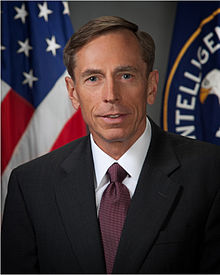Cheyenne Johnson
Staff Writer
America has an unhealthy obsession with scandals. Jersey Shore did not run for six grueling, drama-filled seasons because of its high production value. We don’t watch the Real Housewives because the women go through soul-crunching, life-changing events. We watch them because they’re always overly dramatic and excessively extravagant.
At the bare minimum, they distract us from our lives and lead us to say, “Well, at least I’m not Snooki.”
But there’s something to be said for our obsession with drama and scandal being taken too far. Reality shows are guided by drama. In reality television, this is entirely acceptable and is even what’s expected. It’s not, however, what’s expected or acceptable on news channels like CNN, FOX and MSNBC—and they seem to steadily be forgetting that they’re supposed to be reporting on the news, not acting like a tabloid.
Recently resigned CIA director General David Petraeus is currently at the eye of his own scandal-powered hurricane and the news media can not get enough of it. Videos, articles and interviews concerning Petraeus’s extramarital affair is dominating the news, media and websites—with every reporter discussing it, evaluating every angle and arguing every effect.
Scandal abound. The media jumped on it like a free burger coupon for The Habit and it was Anthony Weiner and Bill Clinton all over again. This is the flaw in our current news media. Entertainment trumps actual news. They’d rather keep you glued to the screen over something that’s not important than focus on what is. Why do they do this? Because it’s what boosts ratings. It’s what attracts the most attention, and it’s foolish and blatantly bad reporting.
Petraeus’s affair is debatable from a moral standpoint, and you can argue about how often military men cheat until you run out of statistics, but the fact that Petraeus had an extramarital affair should matter to no one besides him, the woman he slept with and his family. No one else has the right to offer judgement. It’s simply not our business—a fact the news media seems to have forgotten, or at the very least ignored for the sake of their ratings.
The real issue here is a problem of national security and private documents being in Broadwell’s possession. Debate still centers around whether Broadwell had the clearance to have any of the classified materials and if Petraeus gave them to her in the first place. Broadwell, as an Army reserve officer involved with military intelligence, had the clearance to view sensitive documents and now the courts are left to debate if she mishandled the classified data she obtained.
The content of these documents has not been revealed and as of now, no one knows if Broadwell’s read and seen things she’s not legally allowed to know about. As a reporter, I can see why this would be worrisome to a government. Reporters and authors have this odd tendency to talk—and we do just that.
This is what should be the focus of the events: did Broadwell obtain things she shouldn’t have because her security clearance was so easy to abuse that she could simply take items she was not permitted to take? If that’s truly the case, maybe we should be debating how protected our supposedly secure offices and government secrets really are instead of arguing the moral issues of Petraeus’s affair.
General Petraeus was good at what he did, simple as that. He reported promptly and accurately, and until the scandal broke out, had a nearly untarnished reputation. For one of the most influential men in the wars in the Middle East, and perhaps the U.S. Military, to have to resign entirely because of the affair—which he has claimed his resignation to be based on—is a harsh comment on our own social norms. When did a man’s or woman’s love life become the deciding factor in their ability to do their job? Most grown and mature adults are more than capable of separating their love life from their professional life, and it’s a cruel indictment on Petraeus’s character to claim he can’t do the same.












Comments are closed.